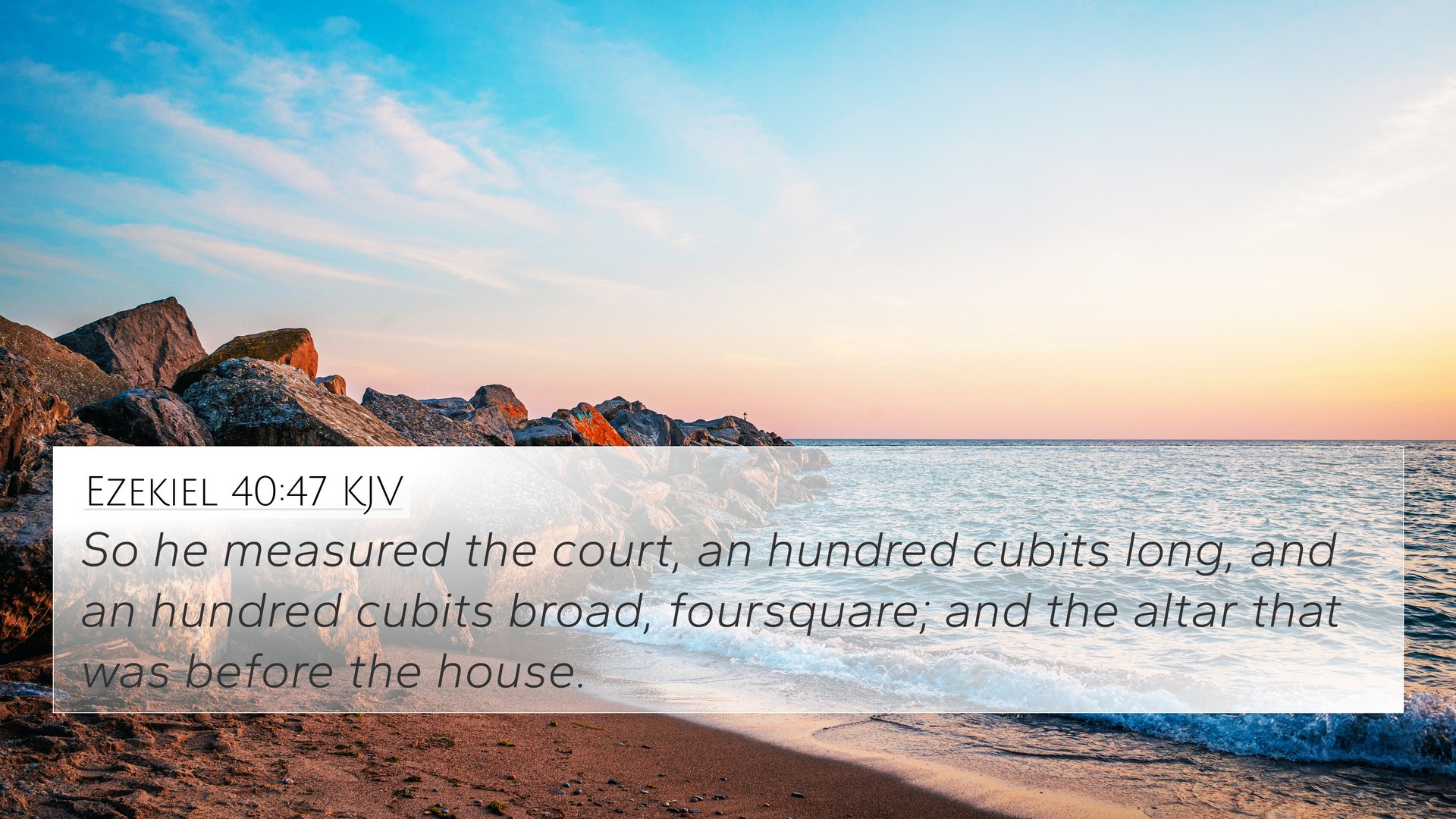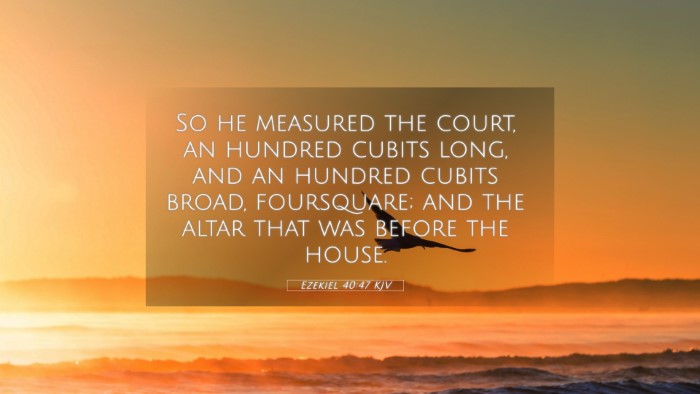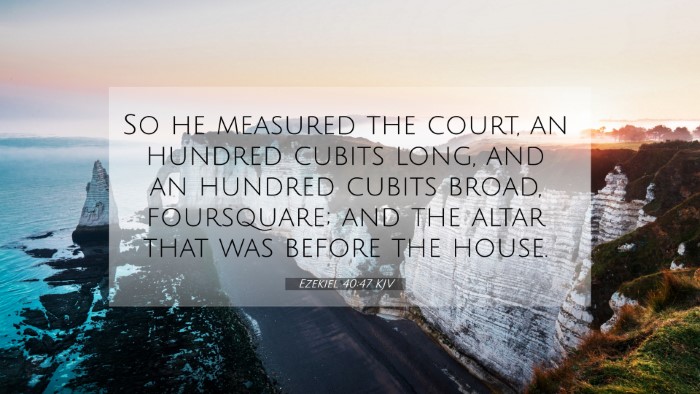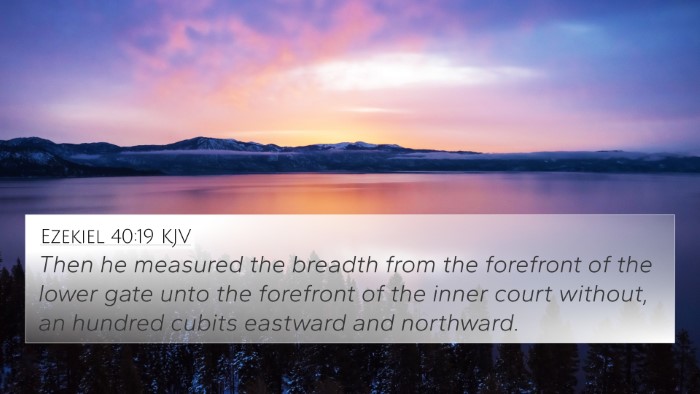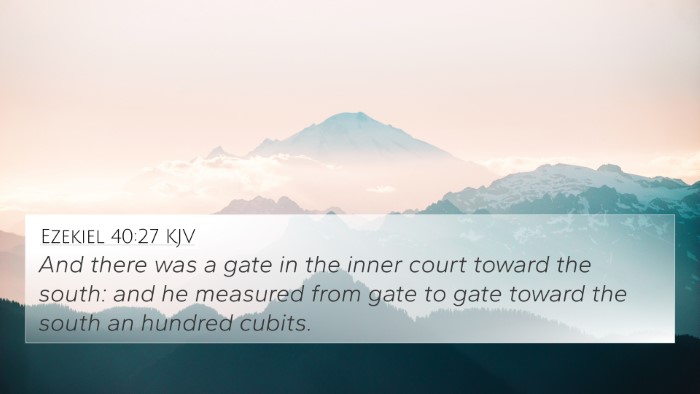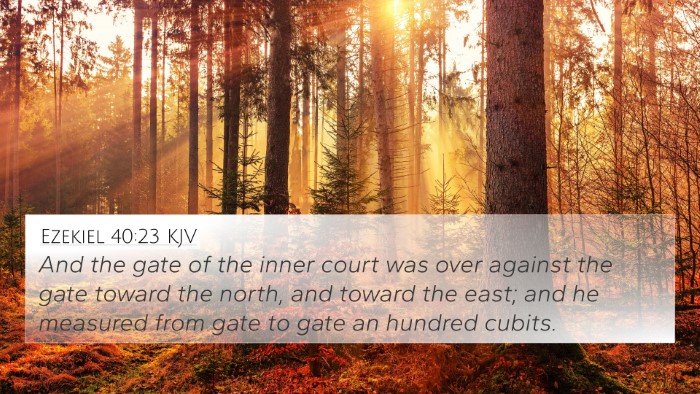Understanding Ezekiel 40:47
Ezekiel 40:47 states: "And the length of the court was a hundred cubits, and the breadth fifty cubits, before the temple." This verse provides a detailed description of the dimensions of the temple court, which is integral to understanding the broader context of Ezekiel's vision regarding the restored temple.
Summary of Insights
This verse serves as a foundational element in Ezekiel's vision, symbolizing not only the physical measurements of the temple but also the spiritual significance of God's presence among His people. The detailed dimensions indicate God's meticulous nature and His desire for order in worship.
Commentary Insights
- Matthew Henry: Henry emphasizes that the precision in the dimensions of the court signifies God's holiness and the importance of worship. It reflects the idea that God's dwelling place should be splendid and set apart.
- Albert Barnes: Barnes discusses how the structure and dimensions may symbolize the concepts of stability and permanence in God's covenant with His people. The court is a place of gathering for His faithful followers, reinforcing community in worship.
- Adam Clarke: Clarke points out the significance of the measurements in the context of ritual purity and divine order. He suggests that the worship practices in such a space would encourage reverence and obedience among the Israelites.
Connections to Other Scripture
The analysis of Ezekiel 40:47 offers numerous cross-references that provide depth and understanding:
- 1 Kings 6:2: Details the dimensions of Solomon's temple, highlighting continuity in God's dwelling.
- Revelation 21:15: Describes the New Jerusalem with precise measurements, symbolizing divine order and perfection.
- Matthew 5:17: Jesus indicates the fulfillment of the law, relating to the importance of temple worship.
- Hebrews 8:5: Discusses the pattern of the heavenly sanctuary, connecting the earthly dimensions of Ezekiel's vision to a heavenly reality.
- Romans 12:1: Calls believers to present their bodies as living sacrifices, which can be seen as a parallel to holy worship in the temple.
- Isaiah 66:1: Points to the greatness of God beyond physical structures, yet highlights His desire to dwell among His people.
- Exodus 25:8: God’s command to build a sanctuary, emphasizing His wish to be present with His people.
Thematic Connections
This verse symbolizes themes that resonate throughout the Bible, such as:
- The Holiness of God: The measurements signify a sacred space set apart for divine worship.
- God’s Presence: The temple is representative of where heaven meets earth, indicating God's desire for communication and worship with humanity.
- Community in Worship: The temple court serves as a gathering place for collective worship, illustrating the importance of unity among believers.
Cross-Referencing Tools and Methods
For those looking to understand and analyze verse connections:
- Bible Concordance: Use it to find related verses quickly.
- Bible Cross-Reference Guide: A tool that can help discover linkages between different parts of scripture.
- Cross-Reference Bible Study: Incorporates various tools to explore thematic connections.
- Comprehensive Bible Cross-Reference Materials: Aid in a deeper understanding of scriptural dialogue.
Conclusion
In summary, Ezekiel 40:47 serves not only as a description of the temple's physical dimensions but also as a narrative that communicates God's relationship with His people. The verse encourages us to explore Bible verse cross-references and to appreciate the connections between Bible verses that enhance our understanding of scripture.
As you engage in Cross-referencing Bible study, reflect on how the Old and New Testament connect, and how this particular verse relates to broader themes of God's holiness, presence, and the importance of community worship.
